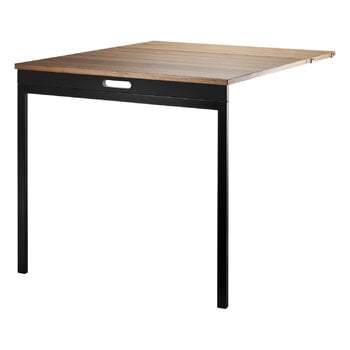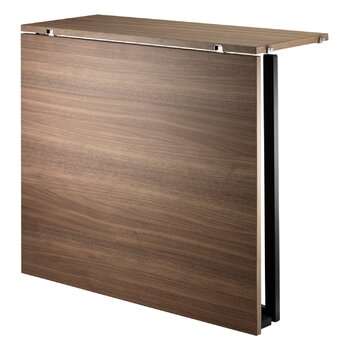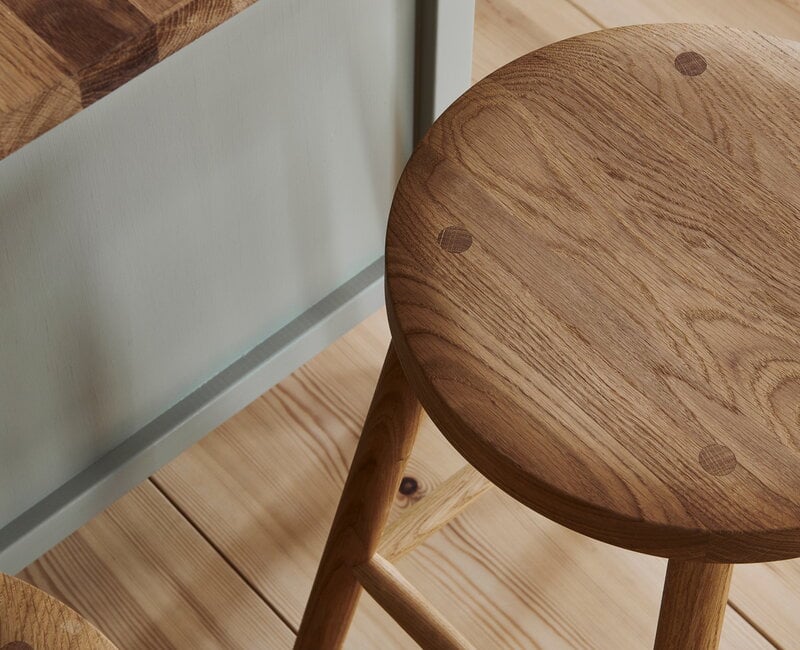The String folding table by String Furniture is a lightweight and versatile table that is attached to the String floor panels. When folded down, the remaining part of this space-saving table still works as a shelf. The String folding table was designed by Anna von Schewen and Björn Dahlström.
String System is an iconic modular shelving system that was originally designed by Swedish architect Nils Strinning back in 1949. The signature ladder-like side panels can be combined with different shelves, magazine racks, work desks, folding tables, chests and cabinets, allowing you to create a customised system that best suits your needs. The timeless and minimalist design of the String System makes it an ideal choice for modern homes and offices, and the versatile shelving system can be endlessly expanded both vertically and horizontally. String Furniture remains dedicated to designing and manufacturing its products in Sweden.









